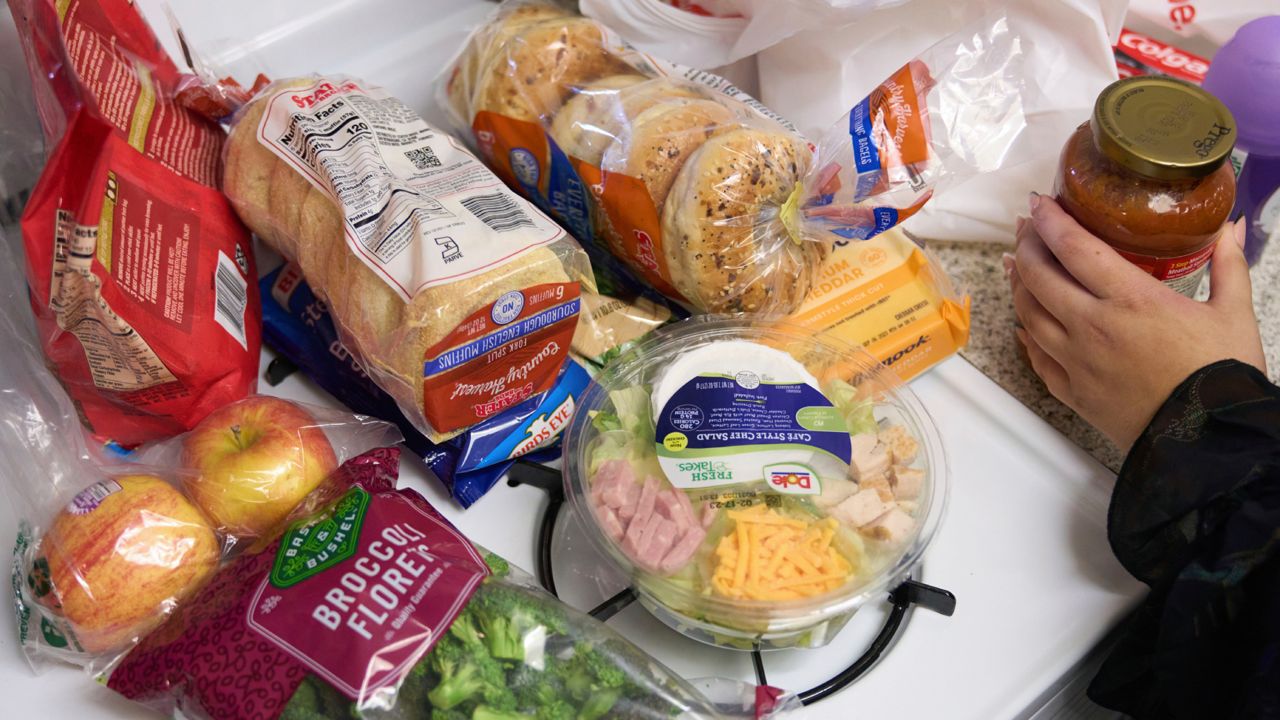TEXAS — We are just days away from Supplemental Nutrition Assistance Program (SNAP) benefits not being distributed to those who need them as a result of the ongoing government shutdown. Alongside those who are wondering where their next meal might come from are businesses wondering how that might impact them after Nov. 1.
According to the USDA, more than 3.4 million Texans participated in SNAP in May of this year.
Using the latest data available from the USDA and the U.S. Census Bureau, the Center for American Progress found that more than a dozen Texas counties have retailers that are at risk of being harmed by SNAP cuts.
This is the percentage of SNAP recipients/retailers at risk in major Texas counties:
Bexar: 275,087 recipients (13.3%) / 1,359 retailers (4.9 per 1,000 recipients)
Dallas: 316,124 recipients (12.1%) / 1,815 retailers (5.7 per)
El Paso: 145,850 recipients (16.8%) / 658 retailers (4.5 per)
Harris: 623,573 recipients (13%) / 3,626 retailers (5.8 per)
Travis: 80,371 recipients (6%) / 692 retailers (8.6 per)
Many rural counties are also at risk where more than 30% of the population relies on SNAP for nutrition access. The Federal Reserve reports that in 2018 there were about $60 billion worth of EBT transactions across the country. So every single SNAP provider from small, locally owned establishments to mega grocery stores could feel the loss of business in November.
FMI – The Food Industry Association is just one group calling on the government. In a statement, FMI Chief Public Policy Officer Jennifer Hatcher said the time to act is now.
“We urge Congress to move forward now on a path that reopens the government and ensures families relying on SNAP can access their November benefits without interruption or delay.”
In a statement urging leaders to reopen the government, the National Grocers Association (NGA) President & CEO Greg Ferrara explained that the program drives economic growth in communities.
“A powerful economic engine for communities big and small, SNAP supports over 388,000 American jobs, generating over $20 billion and $4.5 billion in wages and tax revenue, respectively.” Ferrara goes on to say the “NGA urges Congress to act swiftly to ensure continuous funding for SNAP and WIC so that families can continue to put food on the table. Protecting these programs is an investment in the health, stability, and well-being of Main Street communities across the country.”
Food banks across the state are gearing up for an influx of Texans needing their services. Some in San Antonio are pushing to get food off the shelves and into families’ homes. The Central Texas Food Bank is expanding distributions times to include nights and weekends.

